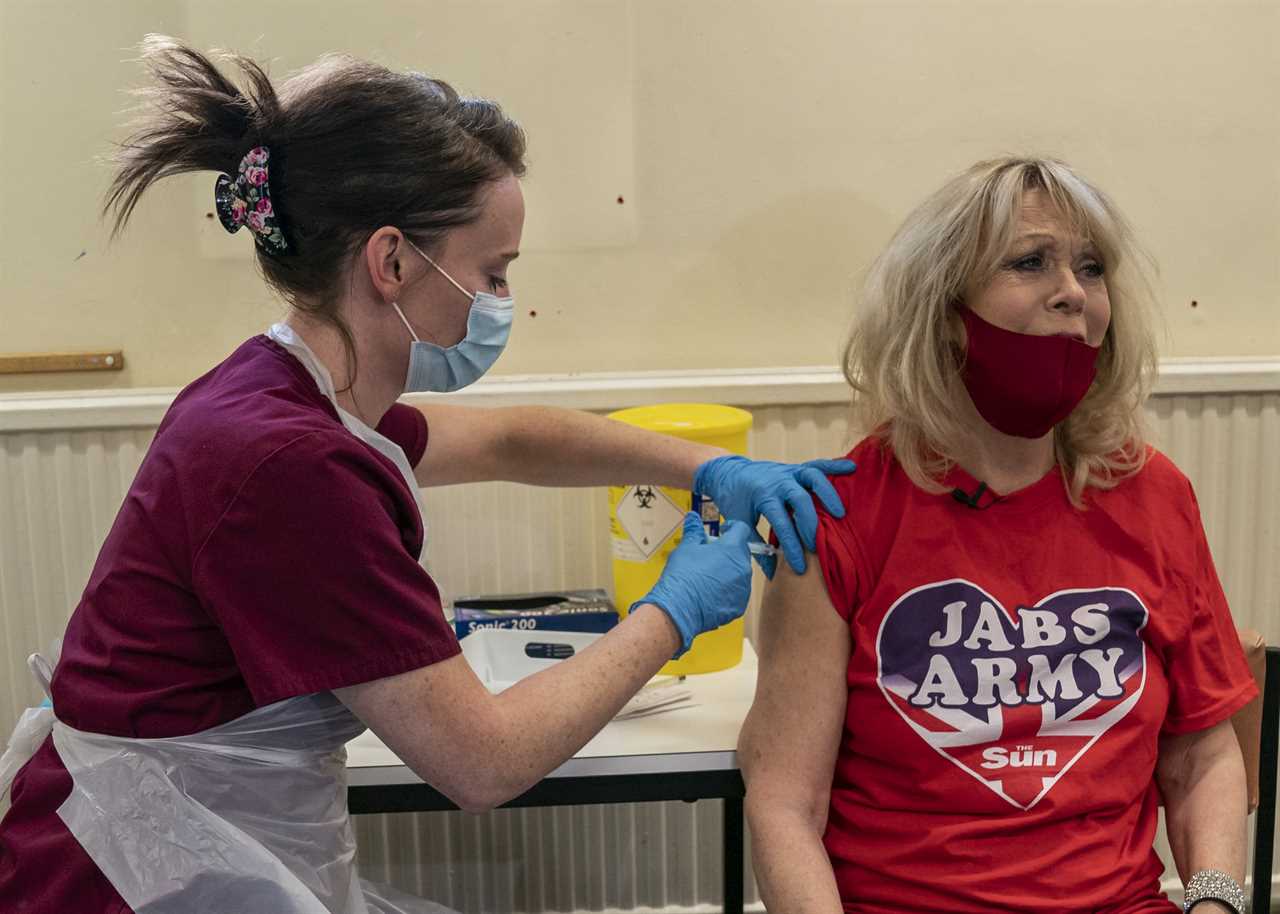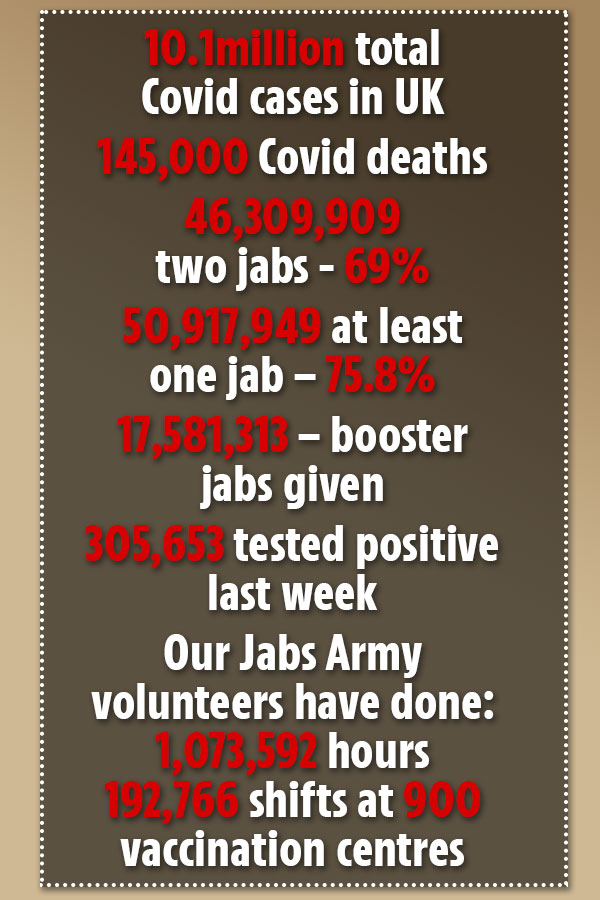WE don’t know much yet about Omicron – the new variant of the Covid virus.
But we do know a lot about the vaccines that have been protecting us during the past year — and we have no reason to believe that those vaccines won’t work against this latest strain of the virus.

This week it will be 12 months ago that Pfizer’s Covid vaccine was given Government approval, and since then we have learned that being jabbed does work and definitely keeps people out of hospital.
I don’t need studies — I’ve seen it with my own eyes.
Being vaccinated is our best tool against the virus, so we must continue to accelerate its use, as we did when the Delta variant arrived here in March.
In Bolton, where I have been leading the vaccination programme, we have had five serious waves of Covid.
Each time it was people without a vaccine falling ill that saw our hospital and critical care admissions soar.
We are starting to see more and more double-vaccinated people catching Covid.
We never said the vaccine would prevent it but we know it does reduce the chances of getting really sick with it — or worse.
This new variant shows we are not out of the woods yet.
From today we will all have to wear masks again in shops and on public transport.
And now booster jabs will be given to everyone over 18, the Government announced yesterday.
Experts on the Joint Committee on Vaccination also want to see the minimum gap between second dose and booster halved to three months.
And anyone with a weakened immune system should be given four jabs instead of three.
It also advised that children aged 12 to 15 should have a second jab three months after their first.
But hopefully the arrival of the Omicron strain will also encourage people to see getting their booster jab as a priority.
All three UK available vaccines — AstraZeneca, Pfizer and Moderna — have been shown to be effective in reducing serious illness from Covid-19.
Mixing them is safe and may even be beneficial.
One of the things we don’t know yet is how often we will need to give boosters.
Maybe we won’t need extra protection because three doses may last a lifetime.
Studies to find out exactly who needs a booster and how often are ongoing, so only time will tell.
But for those of you who have had no vaccinations at all, it’s not too late to start.
And if you have already had two jabs, please make sure you get a booster as soon as possible.
We now think that for some people immunity to coronavirus starts to wane around the six-month mark.
This means the protection given by the first two doses of the vaccines may no longer be as good as it was and you could do with a top-up, which is what the booster does.
In fact, for many people, the booster takes their level of protection up past what they had after the first two doses!
When we started the Bolton booster programme, lots of elderly people rushed to get their jabs as they were worried about how well protected they were.
Some had even started to stay indoors again.
But as we’ve gone down the age groups, especially now we are dealing with working people who have busy lives, the numbers coming forward have really tailed off.
It is especially important to have your immunity topped up as we head towards Christmas.
This has already been the worst winter for viruses and healthcare pressures that I have experienced in 15 years as a doctor.
We’ve all heard about long ambulance waits and hospitals bursting at the seams this winter, please don’t be caught up in this while suffering from Covid.
People ask, ‘Will I get side-effects?’ The truth is, many don’t have any at all. For most who do, the symptoms are mild and short-lived.
But I can promise they will be much less than the effects of serious Covid or Long Covid.
In the run-up to Christmas, it is important to have the jab to keep everyone as safe as possible.







